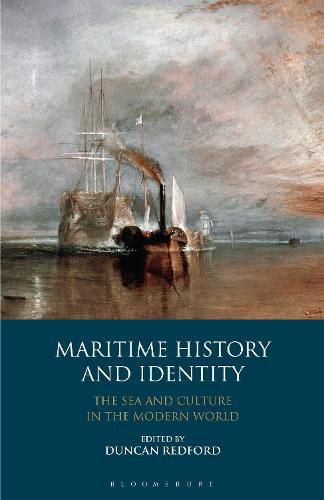Readings Newsletter
Become a Readings Member to make your shopping experience even easier.
Sign in or sign up for free!
You’re not far away from qualifying for FREE standard shipping within Australia
You’ve qualified for FREE standard shipping within Australia
The cart is loading…






The sea and its relation to human life has always been a subject of fascination for historians. For the first time, this book looks at the field of Maritime History through the prism of identity, looking at how the sea has influenced the formation of identity at a national, local and individual level from the early modern age to the present. It looks at a variety of people who interacted with the sea in different ways - from merchant sailors to naval officers and, on land, from dockworkers to the civilians who participated in the sea-based festivals in the Mediterranean port city of Messina. A cultural strand runs through the volume, with chapters focussing on the cultural construction of the ‘naval hero’ in literature, poetry, music and art, and an appraisal of the Japanese author and journalist It? Masanori, whose works had such a profound influence on Japan’s post-World War II national identity. A key focus is the ways in which the Royal Navy influenced British identity at a national and regional level, but other countries with a strong naval tradition - such as Japan, Italy and Germany - are also analysed. By bringing together a variety of themes related to identity, this book provides the first attempt to thoroughly analyse the ways in which maritime historians have engaged with the question of identity in recent years. In doing so, it provides an important and unique addition to the historiography, which will be essential reading for all scholars of maritime and naval history and those concerned with the question of identity.
$9.00 standard shipping within Australia
FREE standard shipping within Australia for orders over $100.00
Express & International shipping calculated at checkout
The sea and its relation to human life has always been a subject of fascination for historians. For the first time, this book looks at the field of Maritime History through the prism of identity, looking at how the sea has influenced the formation of identity at a national, local and individual level from the early modern age to the present. It looks at a variety of people who interacted with the sea in different ways - from merchant sailors to naval officers and, on land, from dockworkers to the civilians who participated in the sea-based festivals in the Mediterranean port city of Messina. A cultural strand runs through the volume, with chapters focussing on the cultural construction of the ‘naval hero’ in literature, poetry, music and art, and an appraisal of the Japanese author and journalist It? Masanori, whose works had such a profound influence on Japan’s post-World War II national identity. A key focus is the ways in which the Royal Navy influenced British identity at a national and regional level, but other countries with a strong naval tradition - such as Japan, Italy and Germany - are also analysed. By bringing together a variety of themes related to identity, this book provides the first attempt to thoroughly analyse the ways in which maritime historians have engaged with the question of identity in recent years. In doing so, it provides an important and unique addition to the historiography, which will be essential reading for all scholars of maritime and naval history and those concerned with the question of identity.